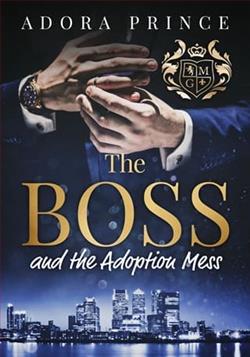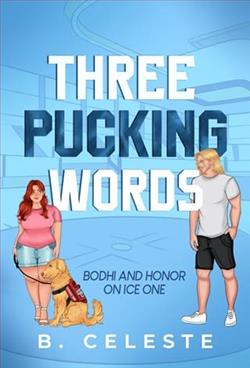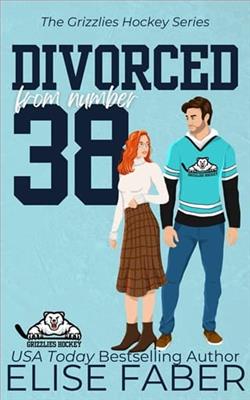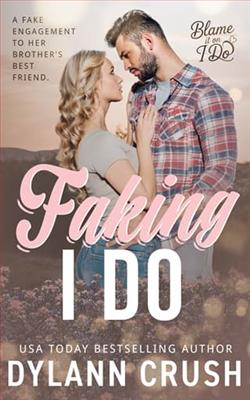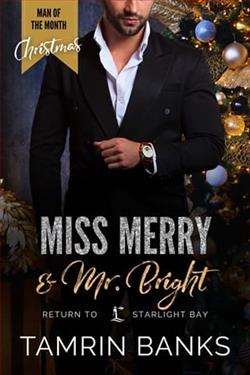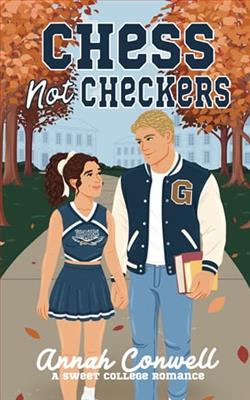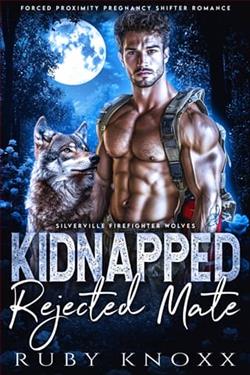Page 13 of His Heart
“Oh, you think so?” he said. “We’ll see about that.”
It hurt when I laughed, but I didn’t care. Felt like I hadn’t laughed—or even smiled—since before state. I was glad Charlie had brought up wrestling. It was good to talk about something normal for a change. Not doctors and heart medications and test results.
Charlie hung out for a while longer and we shot the shit. Talked about school, and graduation, and what college was going to be like. He’d wanted to find an out-of-state school, but U of I had offered him a scholarship he couldn’t refuse. I was in the same boat.
He asked about Cami, and whether I thought we’d stay together. We were going to the same school, so I figured we would. He’d broken up with his girlfriend before wrestling season had started—said it was too hard to keep her happy when he was focused on his sport. Now she was dating someone else, but he was over it. Ready to meet some college girls in the fall.
When he got up to leave, I thanked him for coming. But I didn’t think I’d done a good job of expressing how grateful I was. Having a normal conversation—with someone who assumed I’d get better and things would go back to normal—did a lot to ease the stress I’d been under since I’d woken up in the hospital.
I was a state champion wrestler. Say what you will, no other sport required as much focus. As much mental toughness. It was just you out there; no one else had your back. To win, you had to learn to dig deep, leave it all on the mat. And I was the best.
Charlie was right. I’d be his teammate next year. I had to be. I didn’t know what I’d do without wrestling.
* * *
The doctor camein earlier than we expected the next morning. My parents had arrived by nine, looking pale and haggard. Neither of them looked like they’d been sleeping much. Dad was tough. He’d been a wrestler too—state champ in his weight class. He held himself like the athlete he’d been, taking each bit of news as it came, staying focused on what was in front of him.
Mom, on the other hand, was softer. Dad often said she was made of feelings. It was hard to see her so concerned. But no matter how often I told her I was doing okay, the fear never left her eyes.
Dr. Senter had a folder of paperwork in her hands. She flipped through a few times after she’d said hello to me and my parents.
“Well, I have mostly good news,” Dr. Senter said. “The biopsy gave us the answers we need.”
I let out a breath. Finally.
“You have what’s called myocarditis. That basically means you have inflammation in your heart muscle. The inflamed tissue caused the electrical impulses that regulate your heartbeat to become erratic. The signals were too uncoordinated, so your heart stopped pumping.”
“What caused the inflammation?” Dad asked.
“It usually follows an infection of some kind,” Dr. Senter said. “It could be viral, although bacterial infections have been known to cause cases of myocarditis as well. But Sebastian’s health history doesn’t indicate he’s been sick.”
“No,” Mom said. “He never gets sick. Other kids got ear infections and coughs and stuffy noses, but never Sebastian. He’s always been so healthy.”
“No strange symptoms in the last six months or so?” Dr. Senter asked, looking at me. “Fatigue, stomach problems, fever?”
“No,” I said. My mom was right. I almost never got sick.
“Well, in some cases, the cause can’t be determined,” she said. “Sometimes we just don’t know why it happened.”
“What do we do now?” Dad asked. “What sort of treatment does it require?”
Just like my dad—ready to talk solutions.
“Our first concern is preventing another fibrillation episode,” Dr. Senter said, her eyes on me again. “I have several prescriptions you’ll need to take. These will help ease the load on your heart and make another ventricular fibrillation less likely.”
“But what about the inflammation?” Dad asked. “How do we fix that?”
“We just need to let it heal,” Dr. Senter said. “The medications will help. We’ll need to keep a close eye on his heart function over the next six to twelve months. For now, you’ll need to limit your activity. You’re a wrestler, is that right?”
“Yeah,” I said. “But the season’s over.”
Dr. Senter nodded. “That’s good. Definitely no wrestling. Or running. Keep it mild so your heart can get better.”
I nodded, but I hated the idea of not working out. I took a little time off after wrestling season each year, but I kept in shape year-round. I had to be ready for next season. College was going to be even more competitive. I had to up my game, not take time off.
But I couldn’t wrestle at all if my heart quit working again.
I glanced at my dad. “It’s just like any other injury. I’ll rehab it, and next thing you know, I’ll be back at a hundred percent.”
He smiled—a look of resolve—and nodded. “That’s right.”
Dr. Senter had more to say, but it was all worst-case scenario stuff. What would happen if my heart didn’t heal—if the inflammation spread. I needed to know what to look out for—how to tell if something was wrong—but I didn’t worry about the rest. I’d take my pills, follow my rehab plan, and be back to my old self in time for wrestling at U of I.
That was what was going to happen. Like winning state against Charlie. There was no other option.








